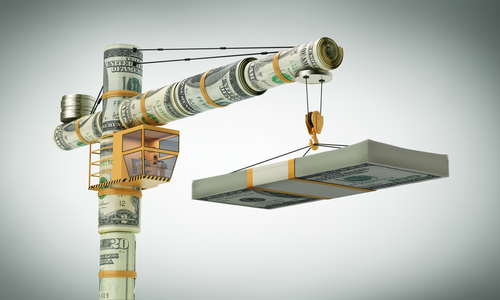Building credit from scratch and it’s close second cousin, rebuilding damaged credit, do not normally follow the same process. Yes, many of the steps involved in establishing credit for the first time are quite similar to those steps that a consumer would take if he were, for instance, trying to reestablish credit after a bankruptcy. However, there are important differences and it is important to understand the reasons why it can be uniquely challenging to qualify for new accounts when you are starting from nothing.
Why Is It So Difficult to Establish Credit?
Spoiler alert! Lenders are in business to make a profit, and they don’t profit unless you pay them back. They do not simply hand out loans and issue credit cards out of the kindness of their hearts. Instead, they loan money to consumers whom they believe to be good risks and profitable.
Every time a lender issues a credit card or approves a loan application they are taking a financial risk. Late payments, defaulted accounts, charged off accounts, collection accounts, judgments – these are all events that cost lenders money. To help avoid these negative events, they rely heavily on your credit reports and scores to help them predict whether or not you will pay your financial obligations.
If your credit reports and scores indicate that you are likely to pay them back on time, lenders will probably want to do business with you. However, if your credit reports and scores indicate that you are not so likely to pay on time then they will either pass on doing business with you entirely or they will charge you higher interest rates and fees to help offset the risk of lending to you.
When someone with zero established credit applies for an account the lender generally becomes nervous. The majority of lenders do not want to be the guinea pig or trailblazer who issues you your first loan. Because of this reason most traditional lenders and banks will not allow you to borrow money with no established credit history, which means you won’t have a credit score.
How to Build Credit for the First Time
Even though it can be difficult to build credit for the first time, the good news is that it’s not impossible. You just have to know where to start. Here are 3 great ways to build credit from scratch:
1. Secured Credit Cards
Traditionally secured credit cards offer an easy approval process, even for someone with no prior credit history. With a secured card you will make a deposit with the card issuer equal to (or darn close to) the credit limit you will be issued. For example, you deposit $300 and the bank issues you a credit card for $300. Just be sure that the card issuer will report your account history to all three of the credit reporting agencies – Equifax, TransUnion, and Experian – before you fill out the new account application. If they don’t report to all three then it’s like a tree falling in the woods…nobody knows about it and nobody cares.
2. Credit Builder Loan
Many local credit unions offer small credit-builder loans as a means to help their customers establish a credit history. The small loan amount is placed into a savings account and the funds are only released to you after you have paid off the loan in full (generally after 6-12 months’ worth of payments). These installment loans can be a great tool to help you establish credit for the first time and can be a smart addition to a secured credit card since the installment account will help you to add diversity in account management to your credit reports. As mentioned previously, just make sure that the issuing bank will report the account to all three credit reporting agencies before you apply.
3. Authorized User Accounts
Another great strategy for building credit from scratch is to ask a loved one to add you as an authorized user to their existing credit card account or accounts. When you are added to a credit card as an authorized user the account has the potential to show up on your credit reports. If the balance on the account is low, the account is old, and the previous payment history is clean, then being added to a credit card account as an authorized user has the potential to have a very positive impact on your credit reports and scores.




